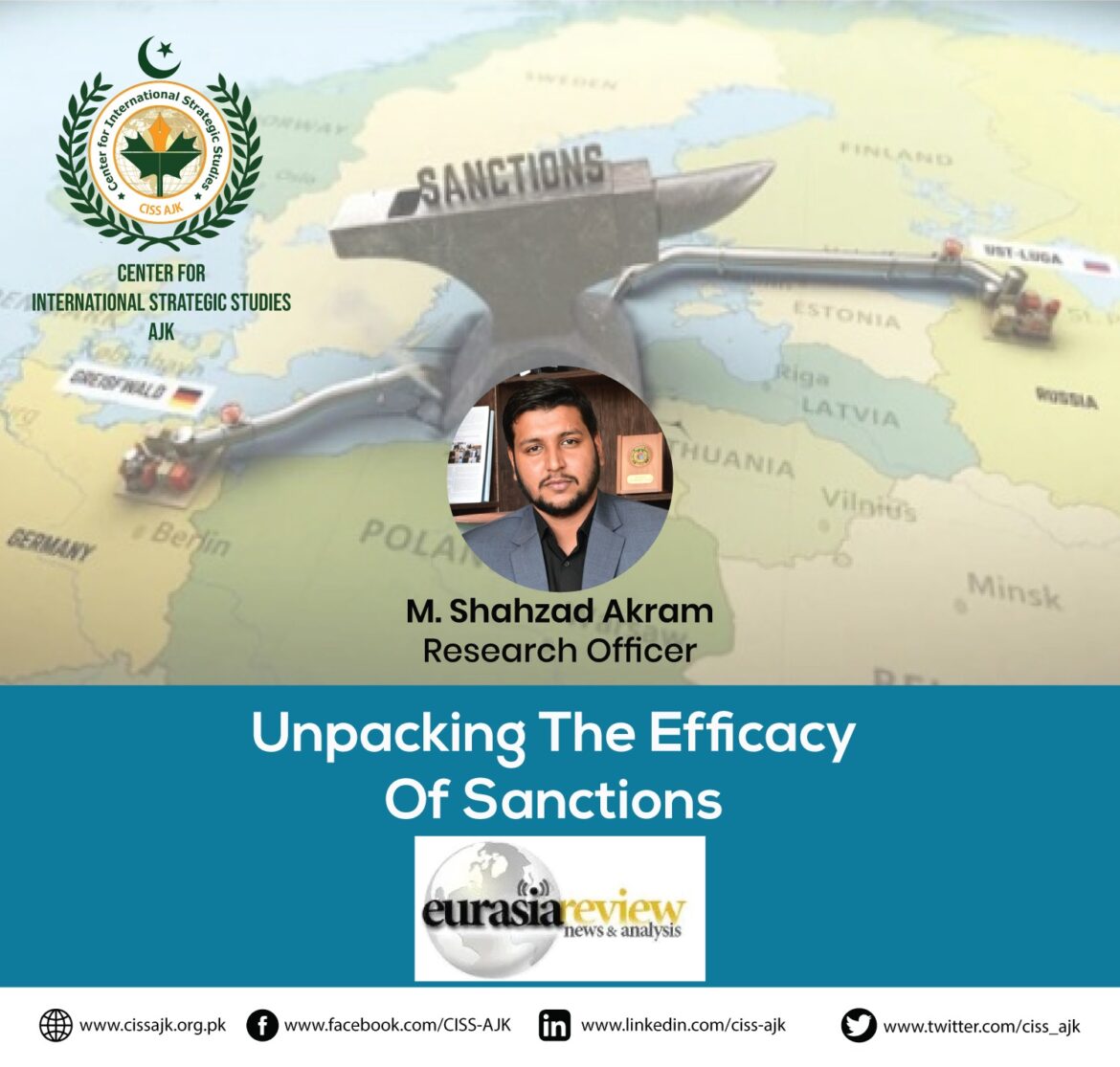675
Sanctions have historically been ineffective in achieving their political goals; often causing harm to the people, they are intended to help. They point out that autocratic regimes can use sanctions to their advantage by bolstering their internal stability and security. Most of the time people misjudge the power of economic sanctions, as bellicose regimes do not consider the financial cost when engaged in conflict.
The sanctions against Russia have been ineffective in deterring Russian actions and have instead had devastating consequences for the West. It is pointed out that Russia, as a large and powerful state, has the ability to hit back with gas, oil, and other raw material sanctions. Additionally, it is stated that the war of sanctions against Russia is separate from the war in Ukraine and is actually a war declared by the West against Russia. The sanctions have had a more negative impact on the West, destabilizing governments and causing distrust among leaders. Moreover, the sanctions have not been effective in changing Russian decisions and the cost of implementing the sanctions may have been greater than the cost of supporting Ukraine militarily. The argument is made that the Kremlin does not fear the economic decline imposed by the sanctions and that it would take much worse conditions for the Russian middle class to consider regime change.
According to Western thinking, strategists, and economists the difficulty of ending sanctions and claims those sanctions do not work. They argue that although sanctions may hurt, they are not effective in achieving their goals. However, Anna Reid, argues that sanctions are currently working by helping Ukraine defend itself and restricting the growth of the Russian economy. She believes that the sanctions should remain in place and even be strengthened to make everyone safer. Reid also provides details on the extent of the sanctions and their impact on various sectors of the Russian economy.
Moreover, it is also argued that sanctions against Russia have affected the country’s economy and its ability to rearm. Initially, when the sanctions were announced, there was panic and economic turmoil, but things have stabilized on the surface. However, the Russian economy is still forecasted to shrink, particularly in sectors dependent on imports. The sanctions have prevented Russia from rearming, causing them to suffer significant losses in military equipment. The country is running out of modern missiles and has resorted to buying weapons from pariah states. Economists predict that Russia is heading toward stagnation regardless of the sanctions, as the West diversifies away from Russian commodities and the country loses access to international capital markets. Russia’s economy is only slightly larger than Spain’s, and it is not a true great power compared to the United States.
The wide-ranging sanctions have had profound economic repercussions, both on the US itself as well as the broader global financial system. One notable effect is the accelerating decline of the US dollar as the dominant currency underpinning international trade and transactions. The restrictions placed on Russia’s ability to conduct dollar-denominated foreign trade have reduced worldwide demand for the dollar. With Russia being compelled to find alternative payment mechanisms, trade with its major partners like China and India is shifting away from the dollar. The emergence of local currency-based trade between Russia and its regional trading partners has also diminished dollar usage. This lower global demand directly impacts the dollar’s value.
To fill the void left by restricted access to dollars, Russia has actively explored alternative reserve currencies like the Chinese yuan. It has also spurred the acceleration of non-dollar payment systems like the Russian MIR payment card. The growing prominence of cryptocurrencies also threatens the dollar’s status over the long run. These alternatives gain attractiveness due to sanctions limiting dollar transactions. Considering accepting alternate currencies for its massive oil and gas exports strikes right at the heart of the dollar’s dominance in global energy trade. This petrodollar system has been at the root of dollar primacy since the 1970s. Russia’s actions motivate other major energy exporters to diversify away from the dollar-denominated oil trade.
Economic sanctions have essentially weaponized the dollar against Russia. But this risks backfiring by accelerating efforts by even US allies to reduce dollar dependence, as they may someday face similar weaponization. It has led countries to diversify foreign exchange reserves away from an overdependence on dollars. The Western sanctions strategy against Moscow is eroding the global standing of the dollar as collateral damage. Reduced demand, alternatives rising, the demise of petrodollar dominance, and weaponization risks have combined to put downward pressure on the dollar and may dilute its status as the reserve currency of choice for international trade.
Muhammad Shahzad Akram
Muhammad Shahzad Akram is a researcher at CISS-AJK. He holds an MPhil degree in International Relations from Quaid I Azam University, Islamabad.



